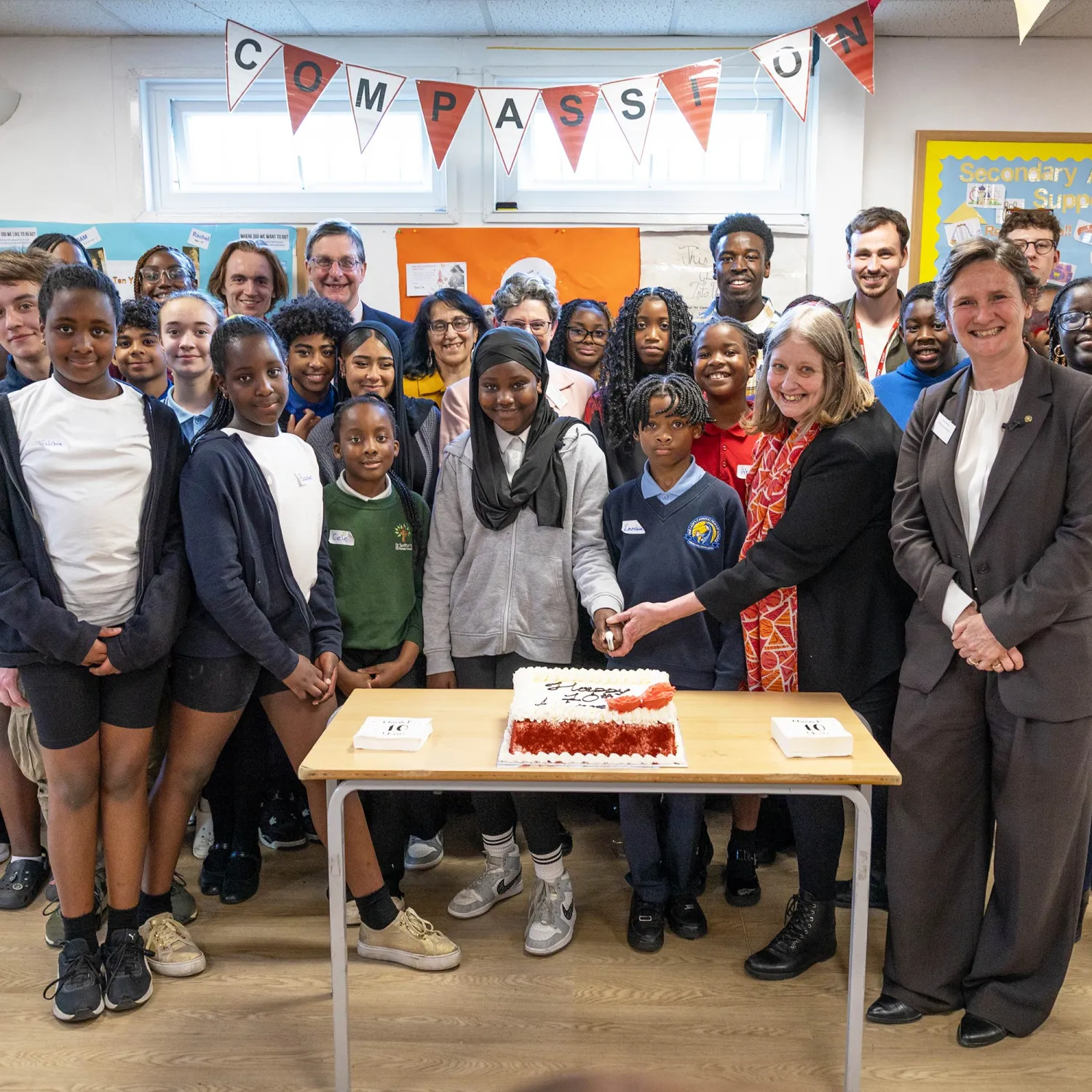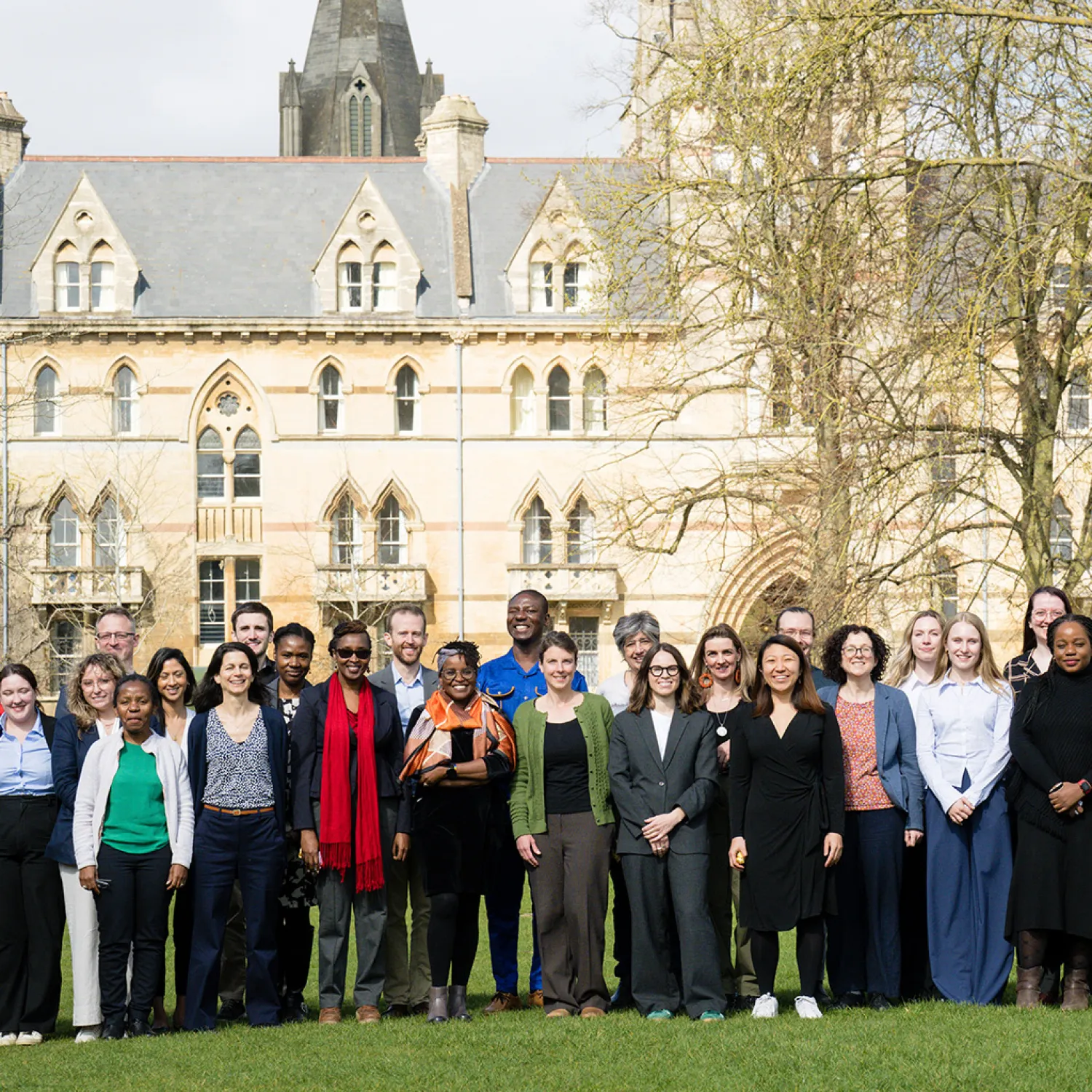Breadcrumb
Ukrainian delegation visits Christ Church, Oxford
On Friday 25 April, Christ Church was honoured to receive a delegation from Ukraine, led by the nation’s Minister of Energy Herman Halushchenko and Deputy Energy Minister Roman Andarak. The ministers visited the College to learn about SHIELD, an FCDO-funded research initiative overseen by Christ Church’s Professor Stephanie Hirmer that focuses on assessing the potential of green hydrogen and ammonia within Ukraine’s energy system. They also took the opportunity to meet with current University of Oxford students from Ukraine.
Precisely 100 days after United Kingdom signed a historic 100 Year Partnership with Ukraine, Christ Church had the privilege of hosting two of the embattled nation’s ministers. Energy Minister Herman Halushchenko and Deputy Energy Minister Roman Andarak came to discuss the future redevelopment and resilience of energy infrastructure in Ukraine, and to learn about the SHIELD programme for which the Principal Investigator is Christ Church’s Professor Stephanie Hirmer, Associate Professor in the Department of Engineering Science at the University of Oxford.
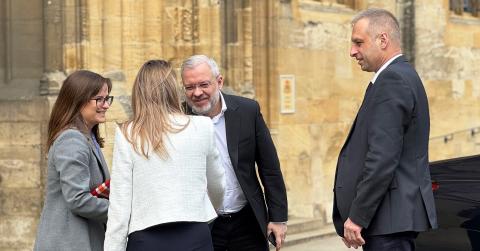
SHIELD – Strategic Hydrogen Integration for Effective Low-carbon Development in Ukraine – is a research initiative funded by the UK’s Foreign, Commonwealth and Development Office as part of the Ukraine Resilience and Energy Security Programme (URES). It seeks to provide models and other decision-support tools to the Ukrainian government to support it in balancing its immediate wartime energy needs with its longer-term energy transition goals and post-war energy resilience.
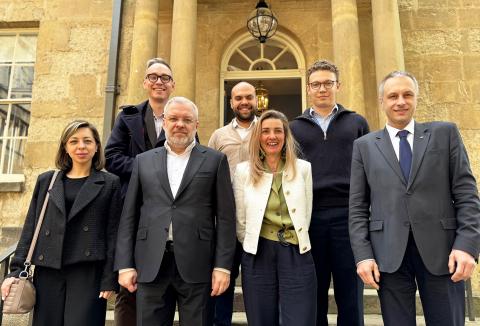
At the meeting in Christ Church, Professor Hirmer outlined the progress already made by her research team. In a fruitful discussion with our Ukrainian guests, she laid out some of the opportunities, challenges and risks associated with Ukraine’s engagement in the green hydrogen and ammonia economy, considering in particular the impact of geopolitical risks and developments on investment.
‘Building a resilient energy system is not just vital for Ukraine’s recovery – it is essential for its long-term sovereignty, security, and prosperity,’ Professor Hirmer said.
‘We are pleased to be supporting this effort through our research, exploring how Ukraine can balance urgent, immediate energy needs with its ambitious longer-term decarbonisation goals.’
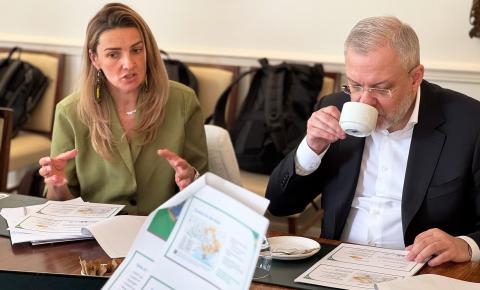
Addressing the group, Minister Halushchenko spoke of the destruction wrought by Russian attacks on Ukraine’s vital energy infrastructure. Through its missile attacks on coal-fired power stations and coal mines, he explained, Russia has accelerated Ukraine’s green energy transition. At a time of war, he added, renewables are especially attractive, being both far quicker to establish than their oil, gas or coal counterparts, and more resilient due to their distributed nature: a large refinery, mine or power plant is far more of a target for missiles, say, than individual turbines or solar panels spread over larger areas of land.
Professor Hirmer’s presentation was followed by another from Professor Theodore Hanein of the University of Leeds, who introduced the delegation to the Safe, Sustainable, and Swift Reconstruction of Ukraine (S3RoU) project, to which the University of Oxford also contributes. S3RoU sits under the umbrella of InnovateUkraine, a UK-funded innovation competition dedicated to accelerating Ukraine's energy recovery, decarbonisation and long-term security. As Professor Hanein explained, the chief aim of S3RoU is ‘to develop low-energy and low-carbon building materials through recycling rubble generated during the war.’ Much of the rubble contains legacy asbestos, posing severe health risks and a major challenge for the recycling project. Through innovative technologies currently being piloted near Kyiv, S3RoU offers a less carbon-intensive and more efficient means of rebuilding Ukraine and other regions that have suffered conflict or natural disasters.
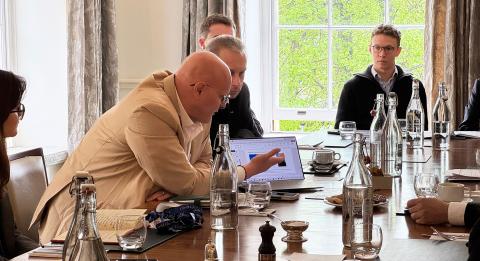
This visit marked 100 days since the UK and Ukraine signed their 100 Year Partnership, setting the course for cooperation for the next century. In the Partnership Declaration, the two countries expressed their ambition to collaborate in the field of energy. Through projects such as SHIELD, the University of Oxford is helping both nations realise that ambition.
At a time when Ukraine is in the global spotlight, it is inspiring to see its leaders not just planning to rebuild, but reshaping their energy future.
At a time when Ukraine is in the global spotlight, it is inspiring to see its leaders not just planning to rebuild, but reshaping their energy future.
The event at Christ Church rounded off a trip in which the Ukrainian delegation had attended the International Energy Agency Summit in London, meeting with UK Prime Minister Kier Starmer and Secretary of State for Energy and Climate Change Ed Miliband. Before beginning their return journey to Ukraine, the two ministers expressed their delight at having the chance to meet with Ukrainian students currently completing degrees at the University of Oxford.
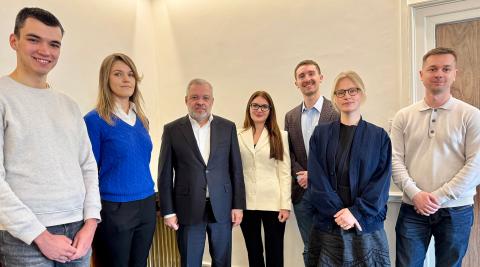
Maryna Nosyk, a DPhil candidate studying Experimental Psychology at Christ Church, let us know what the event meant to her: ‘Although energy does not fall within the scope of my doctoral research, the condition of energy infrastructure in Ukraine does have a significant impact on so many things I do, in particular when collecting data from the participants who are based there. Major power cuts that the country faced last year affected not only the everyday routine but also the mental health of so many Ukrainians, which is hard to even estimate yet.
‘That's why it was incredibly interesting, enlightening and inspiring to be part of the discussion on the energy recovery plan for Ukraine, and to know that even though we are still fighting for our freedom, independence and sovereignty at the front line, there are plans and strategies that are being developed right now to recover our energy system after peace has been negotiated.’
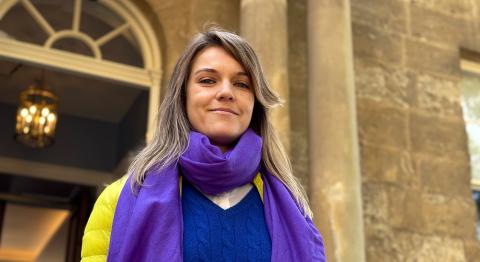
Reflecting on the success of the ministerial visit, Professor Hirmer commented: ‘At a time when Ukraine is in the global spotlight, it is inspiring to see its leaders not just planning to rebuild, but reshaping their energy future. Their ambition to decarbonise and build resilience marks a true watershed moment – and through SHIELD, we are proud to support this.’
The Christ Church community would like to extend our thanks to our guests and all of those who made Friday’s event possible.
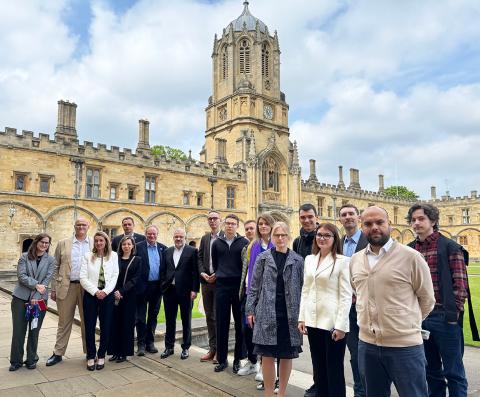
Other Christ Church news


